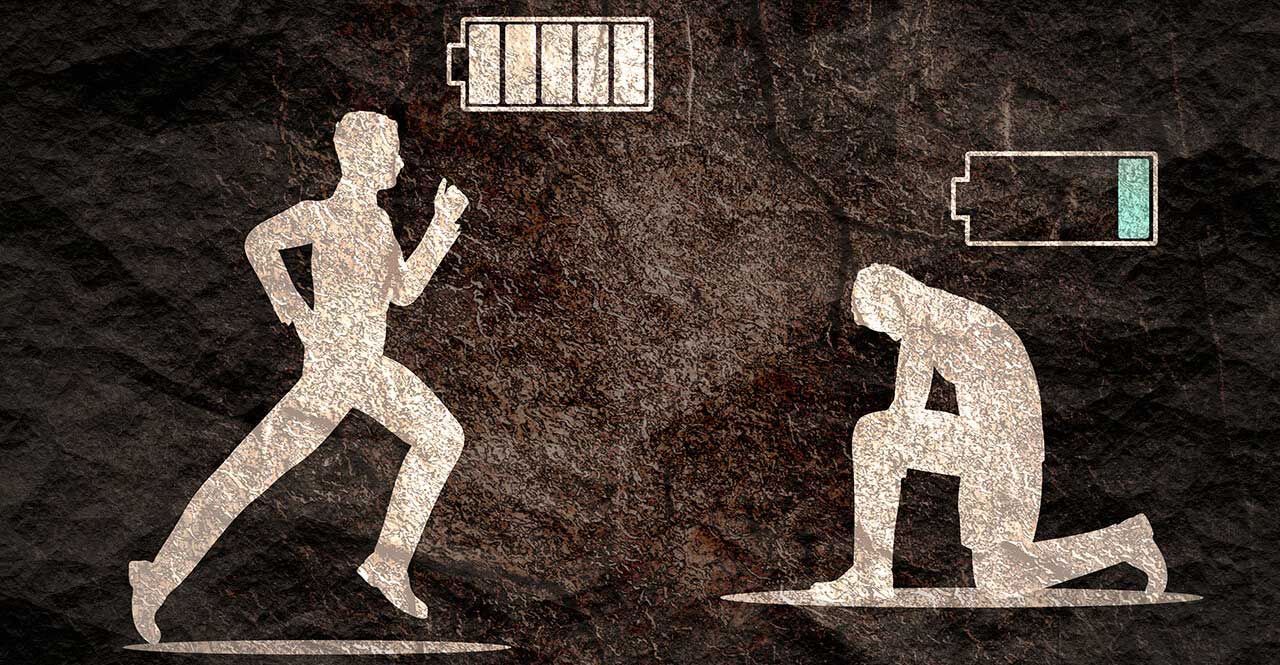
If I asked how your personal energy levels are right now, what would you say? Most people tend to respond with words like tired, sluggish, or drained to explain their current physical state.
If I then asked how you’d increase those levels, what would you say? Most people tend to respond with physical fixes, such as drinking coffee, tea or other stimulants, or getting some extra sleep.
In both cases, these are valid responses. But they’re not the whole story.
Energy is not simply a physical construct. While the physical elements are a consideration in our overall energy levels, we need to delve deeper and look at our underlying mental and emotional energy levels to get the complete picture.
The Whole Life Challenge can help you instill basic practices in your daily life that help keep you healthy and boost your energy level.
The Busy Epidemic
Take a look at the people around you. Like most, they probably feel stressed, depleted, and overwhelmed by the fast pace of modern life. They might feel stuck in “busy mode” trying to do all the things, all the time, just to keep up.
If getting a bit of extra sleep was the solution to tiredness, we could probably solve everybody’s energy problems by telling them to go to bed early for a week. However, the issue of energy levels goes much deeper, and we need to address the mental and emotional aspects to ensure a sustainable and effective result.

If we don’t address these issues, and continue to run ourselves ragged while relying on caffeine or stimulants to get through the day, we’re likely to face serious consequences that could diminish our enjoyment of life. In particular, we run the risk of burnout.
Physically, this might start with small physiological signs – fatigue, headaches or slow reflexes – which can progress to dizziness, lack of coordination, muscle weakness or blurred vision, leading to further issues like high blood pressure, sleep disturbances and digestive problems.
Mentally and emotionally, we may notice increased moodiness, irritability or poor concentration, which could progress to impaired judgement and decision-making ability, memory problems and lack of motivation, leading to further issues like feeling helpless, distrustful and disillusioned.
Put together, these symptoms can have a profound effect on our personal and professional lives. We may find we lack the energy to engage in activities we once enjoyed. We can become increasingly annoyed and impatient with loved ones. We might lose concentration at work, make mistakes, become less productive, and make snap judgments. We could withdraw into ourselves and become socially detached from friends, partners, and family members. We may become more prone to illness and infection and find it more difficult to recover from health problems.
Overall, these potential consequences place a heavy toll on our ability to thrive and enjoy life.

Your Personal Energy Plan
Let’s look at some ways you can protect, manage, and boost those precious energy resources.
Physically, there are many ways to manage energy. Here are four of the better ones:
1. Eat Well, Move Well, Sleep Well:
From a wellness perspective, looking after your body will help maintain your energy levels so you can better handle the physical demands of your day.
The basics of a healthy lifestyle, these three areas are at the foundation of the Whole Life Challenge’s 7 Daily Habits. In the Challenge you’ll make small changes to your diet, your movement routine, and your sleep habits that will make noticeable differences in how you feel and how you perform.
2. Manage Your Ultradian Rhythms:
Our bodies have an energy cycle that repeats every 90 to 120 minutes, called the “ultradian rhythm.” Becoming aware of this cycle, and taking a break when you notice your levels dipping, can help refresh your mind and body. Look for signals such as yawning, loss of concentration and sighing — these can be signs you’re about to enter a dip.
3. Take Regular Breaks:
Maintaining focus for an extended period of time can be difficult, whether you’re at work or in a social environment. Taking intermittent breaks — in line with your ultradian rhythms — can effectively clear your mind and help you reset. It can be as simple as a five-minute walk, a few minutes of stretching, journaling, meditating, or a few cycles of deep breathing.
4. Avoid Distractions:
Multitasking, particularly when reacting to digital notifications and other distractions, drains your physical brain power by forcing your mind to switch tasks and expend precious energy resources. The concept of multitasking is a myth — it’s neither efficient nor productive.

When it comes to your mental and emotional energy levels, try these four strategies:
1. Feed Your Mind:
Just like our bodies respond well to nutritious food, our minds respond well to nourishing inputs. Avoid being overly critical of yourself, worrying unnecessarily, engaging in gossip, or exposing your mind to excessive television and social media.
Knowing how important your well-being is to your health is one thing, taking action on it is another. The Whole Life Challenge knows that along with how you eat, move, and sleep, action in this area is critical. That’s why Well-Being Practices are an important part of your daily commitment during the Whole Life Challenge.
2. What Drains You:
Make a list of the activities that drain you mentally or leave you feeling depleted. Ask yourself if those activities are necessary, and if they could be limited, delegated or removed. Then, counter that with a list of activities that fulfill, energize, and uplift you. Ask yourself if those activities can be incorporated into your daily routine.
3. Avoid the Energy Vampires:
We all know people who drain our energy and leave us feeling exhausted. They may be constant complainers, overly dramatic, or incessantly needy. While it may not be possible to avoid them completely, limiting your exposure to them and being mindful of your reaction to them can be useful. On the other hand, identify the people who leave you feeling happy and revitalized and aim to spend more time in their company instead.
4. Decompress:
Schedule some decompression time into your day. This should be an activity that requires very little conscious effort, but relaxes and soothes. It could be an evening walk, ten minutes of free-writing or journaling, reading a book, drinking a cup of tea, or taking a bath.

Reset and Protect
The pace of modern life can feel hectic and it’s unlikely to slow down any time soon. While having a busy life is not necessarily a negative thing, it’s important to protect your energy levels so you can enjoy life in a way that feels good for you.
So, use today as a reset. Look at the activities and people that drain or fulfill you. Consider methods to boost your physical, mental, and emotional recovery while protecting against fatigue. Acknowledge that your personal energy thresholds may vary day-to-day depending on life circumstances and events beyond your control.
Above all, choose to spend your precious energy on the people and things you’re passionate about, while giving yourself the gift of valuable restorative time to feed your soul.



































